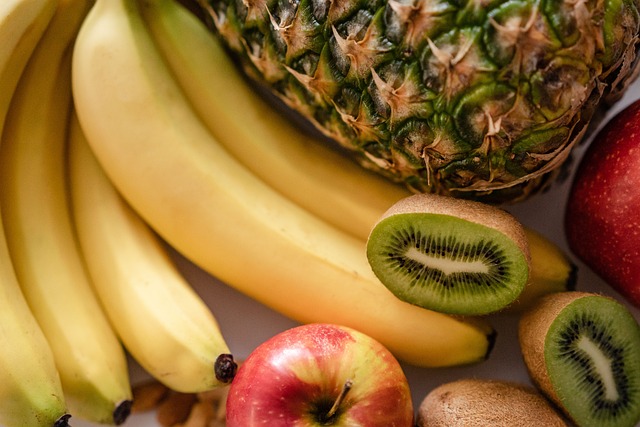In recent years, plant-based diets have surged in popularity, driven by growing awareness of their potential health benefits, environmental sustainability, and ethical considerations. From flexitarians to strict vegans, more people are embracing plant-forward eating habits. But what exactly does a plant-based diet entail? And how can you ensure it meets your nutritional needs while aligning with your lifestyle goals? Let’s explore the benefits, challenges, and practical considerations of adopting a plant-based diet.
What Is a Plant-Based Diet?
A plant-based diet emphasizes whole, minimally processed foods derived from plants, such as fruits, vegetables, legumes, nuts, seeds, whole grains, and plant-based oils. While some interpretations allow for occasional consumption of animal products (like eggs, dairy, or fish), others exclude them entirely, as seen in veganism. The key is prioritizing nutrient-dense plant foods over animal-derived ones.
This dietary approach isn’t just about cutting out meat—it’s about creating balanced meals rich in fiber, vitamins, minerals, and antioxidants. By focusing on plants, individuals often find themselves consuming less saturated fat and cholesterol while increasing their intake of phytonutrients that support overall well-being.
The Benefits of a Plant-Based Diet
Switching to a plant-based diet offers numerous advantages, spanning physical health, environmental impact, and ethical concerns.
1. Improved Health Outcomes
Research consistently shows that plant-based diets are linked to lower risks of chronic diseases, including heart disease, type 2 diabetes, hypertension, and certain cancers. Here’s why:
- Heart Health : Plant foods are naturally low in saturated fats and high in unsaturated fats, which help reduce LDL (“bad”) cholesterol levels. Additionally, the abundance of fiber, potassium, and magnesium supports healthy blood pressure and circulation.
- Weight Management : Whole plant foods tend to be lower in calories but higher in volume, promoting satiety without excessive calorie intake. This makes weight loss or maintenance easier for many people.
- Anti-Inflammatory Effects : Fruits, vegetables, nuts, and seeds contain compounds like flavonoids and polyphenols that combat inflammation—a root cause of many chronic conditions.
2. Environmental Sustainability
Animal agriculture is a leading contributor to greenhouse gas emissions, deforestation, water pollution, and biodiversity loss. By reducing reliance on animal products, plant-based diets significantly shrink one’s carbon footprint. For example:
- Producing plant proteins like lentils or chickpeas requires far fewer resources than raising livestock.
- Shifting toward plant-based eating could conserve land and freshwater supplies critical for global ecosystems.
3. Ethical Considerations
For many, adopting a plant-based diet stems from compassion for animals. Industrial farming practices often involve overcrowding, poor living conditions, and inhumane treatment of livestock. Choosing plant-based options allows individuals to align their food choices with values of kindness and respect for all living beings.
Nutritional Considerations and Challenges
While the benefits are compelling, transitioning to a plant-based diet requires careful planning to avoid nutrient deficiencies and ensure optimal health.
1. Key Nutrients to Monitor
Certain nutrients are more readily available in animal products, so those following a plant-based diet need to pay extra attention to these areas:
- Protein : Legumes (beans, lentils, peas), tofu, tempeh, seitan, quinoa, nuts, and seeds provide complete protein sources when combined strategically.
- Iron : Non-heme iron from plant foods (like spinach, lentils, and fortified cereals) is less bioavailable than heme iron from meat. Pairing iron-rich foods with vitamin C (e.g., citrus fruits, bell peppers) enhances absorption.
- Calcium : Fortified plant milks, leafy greens (kale, collards), tahini, and almonds are excellent calcium sources.
- Vitamin B12 : Found almost exclusively in animal products, B12 must be supplemented or obtained through fortified foods (nutritional yeast, plant-based milks).
- Omega-3 Fatty Acids : Flaxseeds, chia seeds, walnuts, and algae-based supplements supply essential omega-3s.
- Zinc : Nuts, seeds, whole grains, and legumes are good zinc sources, though phytates in plants may inhibit absorption. Soaking or sprouting can improve bioavailability.
2. Potential Pitfalls
Without proper guidance, some pitfalls of a plant-based diet include:
- Overreliance on Processed Foods : Many vegan alternatives (mock meats, snacks, desserts) are highly processed and may lack nutritional value.
- Caloric Insufficiency : If meals aren’t adequately portioned, individuals might not consume enough calories to meet energy needs.
- Social Challenges : Dining out or attending gatherings can sometimes pose difficulties, requiring communication and creativity.
Practical Tips for Success
Transitioning to a plant-based diet doesn’t have to be overwhelming. Start small and build confidence gradually. Here are some actionable steps:
- Ease Into It : Begin by incorporating “Meatless Mondays” or swapping dairy milk for almond or oat milk. Gradual changes are sustainable and less daunting.
- Focus on Variety : Rotate different grains, proteins, and produce to ensure a wide range of nutrients. Try new recipes weekly to keep things exciting.
- Plan Balanced Meals : Aim for a mix of complex carbohydrates, plant proteins, and healthy fats at each meal. For instance, pair quinoa with roasted veggies and avocado for a satisfying dish.
- Educate Yourself : Read books, watch documentaries, or consult with a registered dietitian specializing in plant-based nutrition to stay informed.
- Stock Your Pantry : Keep staples like canned beans, frozen veggies, whole grains, nuts, and spices on hand for quick meal prep.
- Find Community Support : Join online forums, local groups, or cooking classes to connect with others who share your journey.


